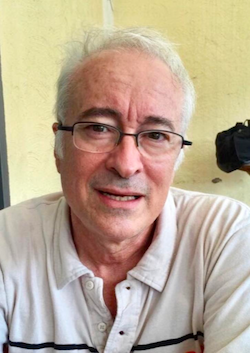This seminar will take place on July 24 at 11:30. The seminar will be in a hybrid format with:
- in-person session in the IST Alameda Campus, Department of Engineering and Management's Meeting Room
- online, via Zoom https://videoconf-colibri.zoom.us/j/2448410145?pwd=R01mVkJ0aEd0WS9RcHJPeDNGQUhSUT09
Our seminars are free to attend and open to everyone. Please share with whomever may be interested.

Summary
The validation of the effectiveness of formal models in social interventions requires reconciling quantitative and qualitative approaches capable of representing different perspectives, values, and beliefs.
We propose to address the qualitative-quantitative interface through metacognitive maps, aiming to promote intra and intersubjective intelligences and facilitate the exercise of the Theory of Mind.
Quantitative models can generate contextualized and localized indicators in these maps, supporting institutional strategic planning. We present applications to five cases in the health field in Rio de Janeiro. Some challenges are inherent to the paradoxical nature of the real world, where systems are self-regulated, self-referential, and recursive.
Speaker's bio
Marcos Estellita Lins holds a PhD in Production Engineering at UFRJ (Federal University of Rio de Janeiro). He is the Coordinator of the Research Group on the CNPq (National Council for Scientific and Technological Development) platform in Brazil, called "Systemic and Analytical Multimethodology," which promotes the integration between qualitative (Humanities) and quantitative (Engineering) aspects of complex social problems. His work integrates recent developments in the Theory of Mind, Social Complexity, Knowledge Mapping, Paradoxes generated by Metacognition, Multiplicity and Dialogic, in connection with areas of Cybernetics, General Systems Theory, Systems Thinking, and Systems Science. Marcos has an extensive academic publication record and several validated applications, particularly in the health field, including in three hospitals in Rio de Janeiro.
